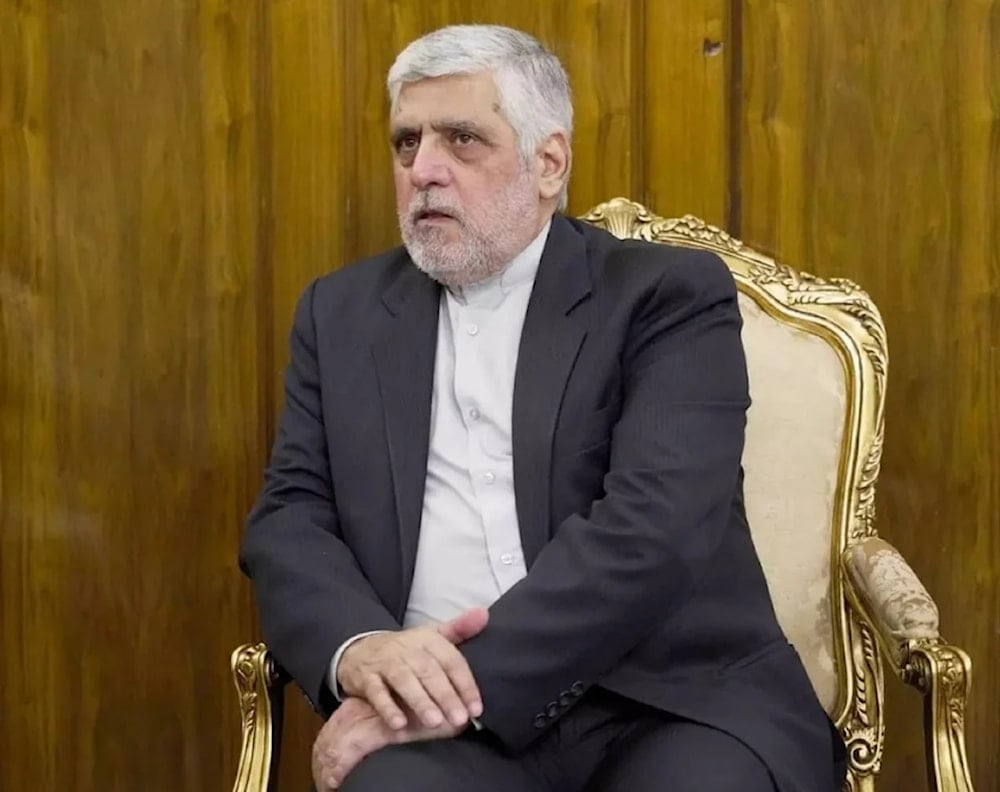Iran will not yield to snapback threats: Iran FM advisor - Exclusive
Iran's special envoy rejects Western snapback threats and warned that Tehran, having already expelled IAEA inspectors, will not yield to coercion.
-

Special Envoy of the Iranian Foreign Minister and his advisor for West Asian Affairs, Raouf Sheibani (IRNA)
Raouf Sheibani, the Iranian Foreign Minister's special envoy for West Asia, has firmly rejected Western pressure to accept a revised nuclear deal.
In an interview for Al Mayadeen, he stated, "Iran will not back down in the face of any Western pressure or threats to activate the snapback mechanism."
His remarks follow coordinated efforts by the E3 countries, France, Germany, and the UK, which, in a recent joint call with US Secretary of State Marco Rubio, set an end-of-August deadline for Iran to agree to new nuclear terms. The move, Axios reported, is designed to allow enough time to reimpose UN sanctions through the JCPOA's snapback mechanism before Russia assumes the rotating presidency of the Security Council in October.
Despite acknowledging that diplomacy remains the preferred path, Sheibani stressed that Tehran is "prepared for all scenarios" should negotiations collapse.
Citing the recent twelve-day war, Sheibani criticized the West's reliance on coercion, saying, "Western military pressure during the twelve-day war yielded no results, and any other form of pressure will not force Iran to retreat."
Snapback threats dismissed
The snapback mechanism, originally embedded in the 2015 nuclear deal, permits the automatic reimposition of international sanctions without a new UN vote.
Yet, Sheibani dismissed its relevance, saying, "Activating the snapback mechanism by the Europeans will be futile. Iran has endured the harshest American and European sanctions for years, and any future sanctions will be no different from the previous ones."
This position echoes warnings from other Iranian officials, who have indicated that triggering the snapback may push Iran to exit the Nuclear Non-Proliferation Treaty (NPT) entirely, after already halting all cooperation with the International Atomic Energy Agency (IAEA) and expelling its inspectors earlier this month in response to Israeli and US attacks on Iranian nuclear sites.
Read more: Iran accuses IAEA inspectors of smuggling spy devices in shoes
Post-war diplomacy, Israeli pressure
Western diplomatic urgency follows recent Israeli strikes on Iranian territory and rising Israeli pressure on Washington to escalate measures. During his latest visit to the White House, Israeli Prime Minister Benjamin Netanyahu reportedly urged President Trump and Secretary Rubio not to obstruct the snapback effort, telling them time was running out. "We felt that Trump and his team agreed with us," one Israeli official said.
Still, Sheibani reaffirmed Iran's commitment to diplomacy. "We are ready for all scenarios if diplomacy fails," he said, adding that Iran would not compromise on its red lines, including its missile program and peaceful nuclear rights.
In his concluding remarks, Sheibani asserted Iran's resilience, "Iran has proven it will not compromise its firm positions despite all threats."

 3 Min Read
3 Min Read








